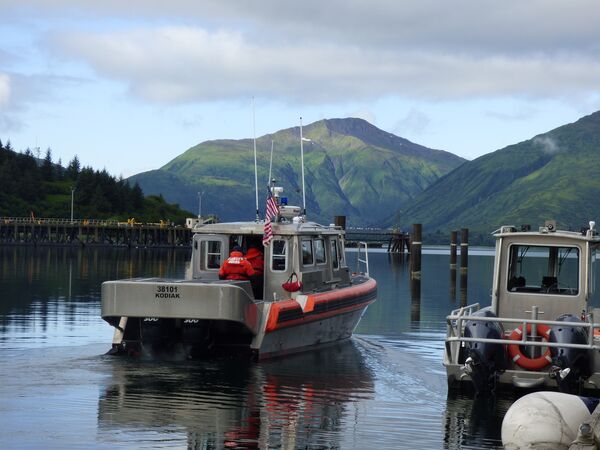
Climate change is creating a greater security burden for the US Coast Guard in the Arctic. (Michael Fabey)
The US should develop a US Arctic intelligence strategy, according to a recent report released by the Wilson Center's Polar Institute on 8 May.
“The US intelligence community (IC) and its customers would benefit from a pan-Arctic approach that views the region as a whole instead of through the current, fragmented lens split across three different combatant commands (European Command, Northern Command, and Indo-Pacific Command),” according to the institute's Polar Perspectives report, The Intelligence Community Must Evolve to Meet the Reality of Arctic Change .
“The Arctic is warming faster than anywhere on Earth, with tremendous implications for US homeland and national security, as well as US security interests abroad,” the report said.
Reduced Arctic sea ice also expands the maritime domain, and “the general trend of increased traffic will drive up demand for [US] Coast Guard resources to manage risks to maritime safety and security”, according to the report.
“It is important for the US intelligence community (IC) to evolve to meet the demands of this new reality,” the report said.
Three priority threats face the US and its allies in the Arctic region: accelerating climate change, China, and Russia, according to the report.
“In the year following their full-scale invasion of Ukraine, Russia has doubled down on its Arctic ambitions and elevated the Arctic from strategic priority number three to priority number one in its updated maritime doctrine,” the report added.
Looking to read the full article?
Gain unlimited access to Janes news and more...







